Undergraduate Opportunities Program (UnO): 2007-2012
National Science Foundation Funding
This project was partially supported by the National Science Foundation under Grant NSF-DEB 0731350 starting 08/01/07 and continued through 08/01/12. Any opinions, findings, and conclusions or recommendations expressed in this material are those of the author(s) and do not necessarily reflect the views of the National Science Foundation.
The Undergraduate Opportunities Program (UnO) supported 46 undergraduate students at the University of New Mexico by immersing them directly into evolutionary and ecological research projects across the Biology Department (25 faculty mentors, three staff mentors, five post doc mentors, and 31 graduate student mentors). With a home base in the Museum of Southwestern Biology, UnO increased level of interest in advanced graduate training and research careers by these University of New Mexico students. Student scholars worked alongside faculty and graduate student mentors to directly experience the excitement of scientific discovery in research projects ranging from evolutionary genomics (looking at changes in the DNA of plants and animals) to environmental fieldwork at locations ranging from Alaska to Peru. Scholars also received help navigating courses, professional development, research ethics, networking and time management. Weekly seminars created a cohesive Scholar cohort, provided insight into professional ethics, honed presentation and mentoring skills, and instilled the confidence that allowed students to excel and explore other aspects of their educational experience. In six years, UnO established a >94% graduation rate, with 45 scholars graduated. Of these, >20 entered graduate programs to date (4 PhD’s awarded, 4 in progress, 13 MS), 5 completed medical or vet school, and an additional 7 have professional positions in biology. Several UnO scholars won prestigious national awards, including the Barry Goldwater Scholarship, Harry and Mabel Leonard Research Fellowship, James Drew Pfeiffer Memorial Scholarship, Maurice Hughes Scholarship for Excellence in Research, NSF STEM scholarship, and others. UnO scholars presented their research at local, national and/ or international conferences (e.g., Cambridge, UK; Yucatan, Mexico) and >20 peer-reviewed papers have been published. Scholars also created the UnO Roadshow, with scholars traveling to seven local K-12 schools to talk about their projects and to encourage students to go on to college, as well as appearing on the local public radio station programs such as the Saturday “Children’s Hour” program.
Comments from UnO Scholars
"This experience made me more engaged in research and in the campus."
"I was amazed how quickly I learned. My mentors trusted me a lot, more than I thought I deserved. I learned a lot. Watching the others working in the lab - at first I was scared - but now can keep right up with them."
"UnO helped create community. I had more time to think about biology through museum work, on-campus job, and presenting research. You can read about science and stuff, but when you have your own data, it's yours. You're invested in science."
"I got to plan my own project instead of being told what to do. I never saw the big picture before, but now anything is possible."
Upon graduating, Matt Peralta reflected on his experience in the program:
"Thank you all for helping me getting more involved in research and the biology field. It’s really opened my eyes to what a college degree is all about. It’s important to have programs that provide a bridge from being a regular student and conduction research, it’s a good deal."
Monica Tellez after presenting her UnO research project at the 2008 North American Benthological Meetings (NABS):
"It was great to see what other people are working on as well as getting feedback on my project. It's good to see that all the 'names' on the articles I've been reading for so long, are 'real people'. I also liked hearing what other labs are doing at different universities and trying to imagine myself doing MY grad work at different places. It was overall a very valuable experience and I look forward to future meetings."
Justin Pichardo on how UnO has worked for him:
"By plugging me into the department. I was a student in the biology program but I didn't feel like I was part of it. I feel much more involved in the scientific community here."
Natalie Blea on why she feels so positive about research:
"It's given me the opportunity to aim for one of those jobs that people say, 'wow, that's your job?' I love fieldwork in the jungle."
April Tafoya:
"My undergraduate degree is almost complete and I really cannot tell you how much I appreciate the UnO program. The opportunities really helped shape my academic career, I am so thankful! I will be on campus next fall as a graduate student - keep me in mind for mentoring!"
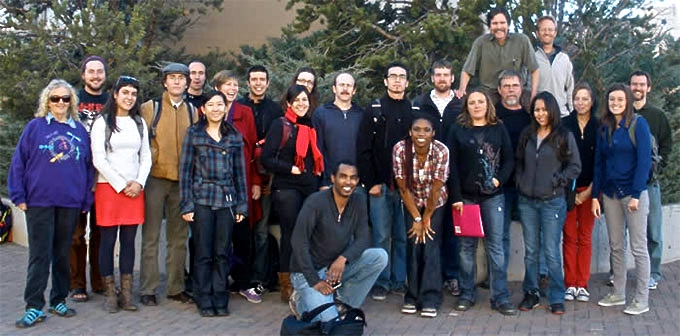 Spring 2012 Spring 2012 |
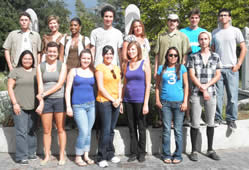
Fall 2011 |
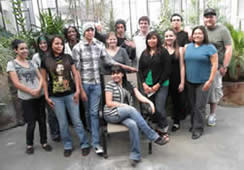
Spring 2011 |
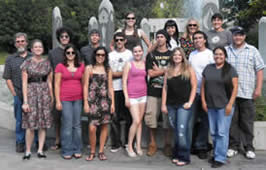
Fall 2010 |
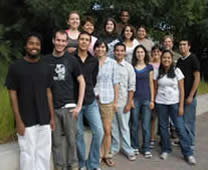
Fall 2009 |
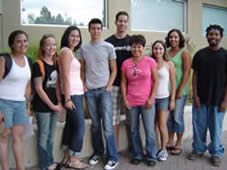 Fall 2008 Fall 2008 |
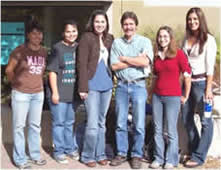 Fall 2007 Fall 2007 |
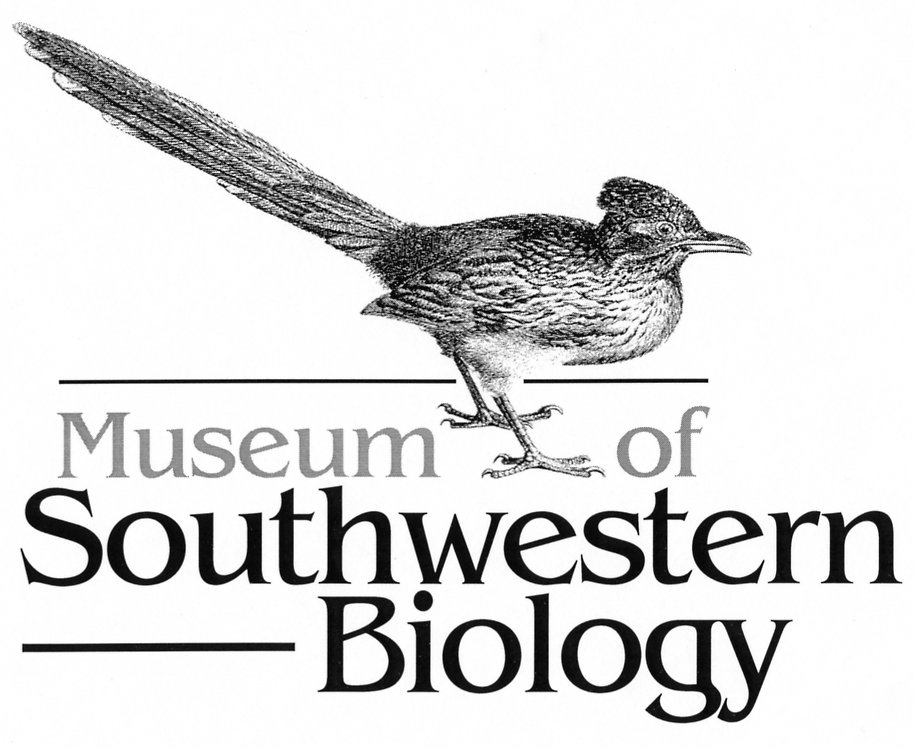
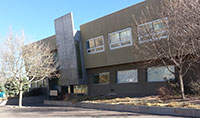


 Spring 2012
Spring 2012



 Fall 2008
Fall 2008 Fall 2007
Fall 2007